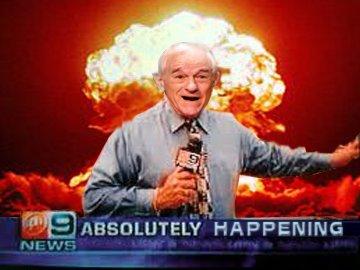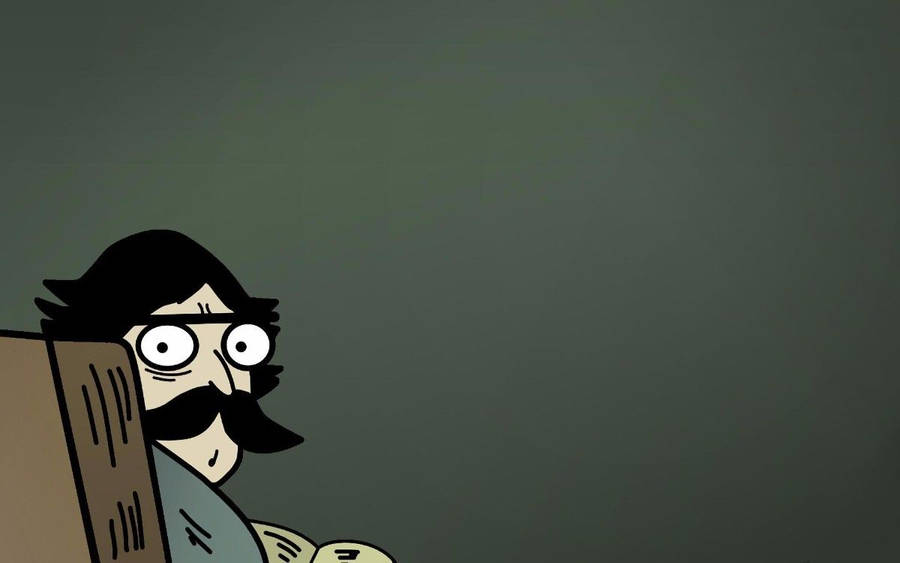No Gods, No Masters
Excerpt from Grey Eminence: The Life of Mikhail Suslov by Konstantin Chernakov
Agricultural issues, including famine, had plagued the USSR since the beginning, so it is fitting that the August Revolution was the result of a horrible harvest. The harvest of 1966 had not been very good[1], and by the summer of 1967 it was clear that an even worse harvest was underway. The winter and spring had been abnormally hot and dry, resulting in a severe decrease both in volume and quality of the winter wheat crop. The situation was not helped by the wave of agricultural strikes that had hit the Soviet Union in the winter of 1966-1967. Fearing famine, the government took another fateful step: it began diverting the grain crop towards human rather than animal consumption. For years the Soviet state had diverted a large portion of the grain crop to livestock feed in an effort to keep meat prices low. While this averted famine this measure meant that meat, already a scarce commodity, virtually vanished from Soviet stores. But even though famine was averted there were still problems. To understand the main problem one has to understand the nature of the Soviet economy. In a capitalist system a bad harvest might mean a rise in food prices, but Soviet prices largely stayed the same regardless of supply. The reason was that the Soviets spent a huge amount (up to 4% of the GDP) subsidizing the agricultural sector, ensuring low bread prices. The Soviet leadership figured that as long as they could provide cheap bread they would maintain order. A side effect of this policy was that it artificially inflated demand, and due to the bad harvests of 1966/67 the Soviets simply could not produce enough to meet that demand[2]. Suddenly bread became scarce across the Soviet Union, creating a situation where the stores ran out of bread by the afternoon and those in the back of the lines went home empty handed.
Excerpt from The August Revolution by Timothy Snyder
The final straw came when the authorities announced the reintroduction of rationing, which had been ended in 1947. Back then of course the USSR was recovering from World War II, but now the government had no explanation for the rationing other than vague statements about the “troubled international situation.” The main response was panic (rumors quickly spread that famine or war were on the way), followed by anger. For many rationing represented everything they had come to hate about the Soviet government, from the failures to bring prosperity to the repression that held them down. Things came to a head on August 15th, when workers from the Moscow Metallurgical Plant, the ZiS Car Manufacturing Plant, the Tikhonov Meat Processing Plant[3], and the Moscow Oil Refinery staged strikes to protest rationing. The strikes quickly turned into a march on Red Square, with thousands of workers taking to the streets. Many housewives and grandmothers joined, which is unsurprising considering that they were often the ones who had to deal with food collection firsthand. The army and MGB were called in to break up the protests. It is at this point that something amazing happened: a large number of soldiers refused to fire on the protestors. Several explanations have been proposed for why this occurred. The most popular is that by August 1967 army morale had hit a low point, with the soldiers sick of both the wars in Eastern Europe and having to constantly put down protests at home. As one soldier later put it “We had come to realize that we were the tools of oppression.” There had also been limited mutinies before, which some scholars take as an indicator that the army was coming apart. Whatever the reasons the Soviet authorities now faced a crisis, and they dealt with it the same way they dealt with most other crises: brute force. The MGB, militsiya[4], and non-mutinying soldiers were ordered to stop the mutineers, using however much force was needed to achieve this goal. It was at this point that the mutiny spread throughout the army. Even those soldiers who were willing to kill civilians found themselves unwilling to kill their comrades-in-arms. The mutiny also turned violent, since the soldiers realized that by refusing to follow orders they were effectively condemning themselves to death should the Soviet authorities win.
Violence swept through Moscow. The streets became a battleground between mutinying soldiers and protesters (often armed with rifles looted from armories) on one side and the MGB, militsiya, and non-mutinying soldiers on the other. The Soviet authorities called up more army units from across the Moscow Military District, only to see most of them join with the rebels. After four days of fighting the rebels’ superior numbers and morale turned the tide in their favor. On the 19th rebel tanks shelled the Lubyanka Building, forcing the MGB to surrender their headquarters. By that point most of the city was in rebel hands, with only the area around the Kremlin remaining under government control. Realizing that help wasn’t going to come on the 21st the forces around the Kremlin surrendered in exchange for amnesty. In all around 5000 people were killed during the Battle of Moscow.
Excerpt from Strange Days: the August Revolution and Its Aftermath by Claude Summers
The fall of Moscow was an extraordinary event, but it would have meant nothing had events only been confined to that city. Despite the best efforts of the government news of the events spread across the country, although at first the news was only that there were large protests that had turned violent in Moscow. In response to this news people in the cities of Leningrad, Smolensk, and Sverdlovsk took to the streets. Like the protestors in Moscow their main issue was rationing, and like the Moscow protestors they were met with force (although the government, having learned their lesson from Moscow, sent only the MGB in). That should have been the end of it, but then on August 17th the rebels captured the Radio Moscow headquarters. The Soviets were caught off guard, having figured that the building would hold out for far longer, and thus hadn’t jammed radio signals or destroyed the station. This allowed the rebels to broadcast several messages, allowing people outside of the Moscow area to know what was happening for the first time. The public believed these messages in large part because the Soviets had imposed martial law throughout the country, something that wouldn’t have happened if something serious wasn’t going on.
The response was swift and severe, with thousands in Smolensk, Leningrad, Gorky, and other cities in north and central Russia taking to the streets. They were joined by soldiers and sailors, many of whom shared the opinions of their comrades in Moscow. From these bases the revolution spread, until cities across the Soviet Union were in revolt. By the start of September the rebels controlled most of north and central Russia, most Siberia (the Yenisei River is generally agreed by scholars to be the approximate edge of their control), and a large chunk of the Urals (namely the cities of Sverdlovsk, Perm, and Chelyabinsk). Independence-minded rebels controlled most of the territory in SSRs outside of Belarus and Central Asia. The stage was set for the Second Russian Civil War.
[1] IOTL the harvest of 1966 was very good, but agricultural problems and climate changes from the use of over a dozen nuclear weapons changes that.
[2] IOTL this problem was solved by importing grain from the US. Of course ITTL that's not an option.
[3] Originally called the Mikoyan Meat Processing Plant, and after his execution changed to the Khrushchev Meat Processing Plant, and then given its current name after his execution.
[4] The civilian police force of the USSR.


